Taiwan Tech Immersive Summer School integrates tech, humanities, and public issues to empower communities.
When technology is no longer just a tool but a way to understand the world, how should education respond to society’s challenges? The Center for General Education of Taiwan Tech recently held the second “Urban STREAM Immersive Summer School”, integrating hands-on technology practice, humanities exploration, and place-based learning. The program invited high school and vocational school students from across Taiwan to engage with real-world social issues, embarking on a cross-disciplinary learning journey rich in critical thinking and public engagement.
Sy-Ying Lee, Director of Taiwan Tech’s The Center for General Education, noted:
“Higher education must respond to the changing times by cultivating, from the younger generation, the ability to combine technological literacy with humanistic concern.”
This year’s summer school continued the spirit of the South Side College, focusing its curriculum on the southern area of Taipei. The term “Urban” in the program’s name symbolizes a new generation of citizens rooted in the south of the city and committed to social concern, putting into practice the educational philosophy of “using the local as teaching material, and the community as the classroom.”
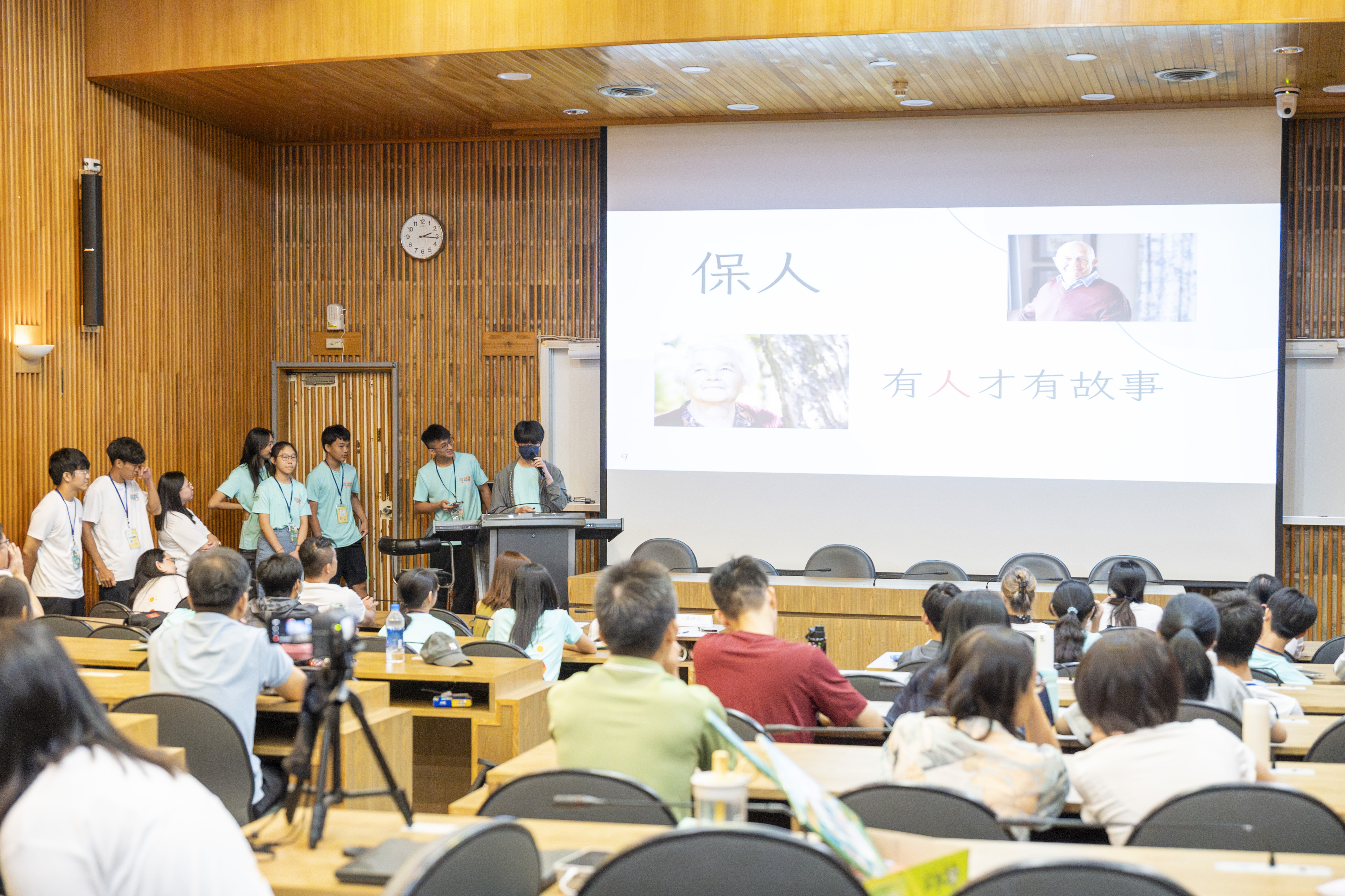
From July 2 to 5, the Center for General Education of Taiwan Tech held the second “Urban STREAM Immersive Summer School,” integrating hands-on technology practice, humanities exploration, and place-based learning. The program invited high school and vocational school students from across Taiwan to step into local communities and embark on a cross-disciplinary learning journey rich in critical thinking and public engagement.
The camp was built around the STREAM education model, integrating six core literacies: Science, Technology, Reading, Engineering, Arts, and Math. The curriculum covered technological applications such as mBot robotics, 3D printing, and green energy, while also incorporating humanistic dimensions, including cultural field studies, gender education, and psychology. Students were guided to engage with local issues, enhancing their social awareness and capacity for public participation. Camp Director Assistant Professor Hsiu-Chin Hung explained: “We hope students not only learn to operate technological tools, but also understand the social meanings and transformative power behind them.”
The learning sites spanned community settlements such as Treasure Hill Artist Village, Home Village, and Huan Min Village (Toad Mountain). Students worked in groups to conduct field observations and design thinking exercises, proposing locally responsive “social prescriptions.” A final presentation event was held on the final day, inviting teachers and parents to celebrate the students’ achievements. Several parents shared afterward that it was their first time seeing their children confidently present in front of an audience, showcasing teamwork and collaboration. They expressed that the camp had brought their children a visible transformation and growth.
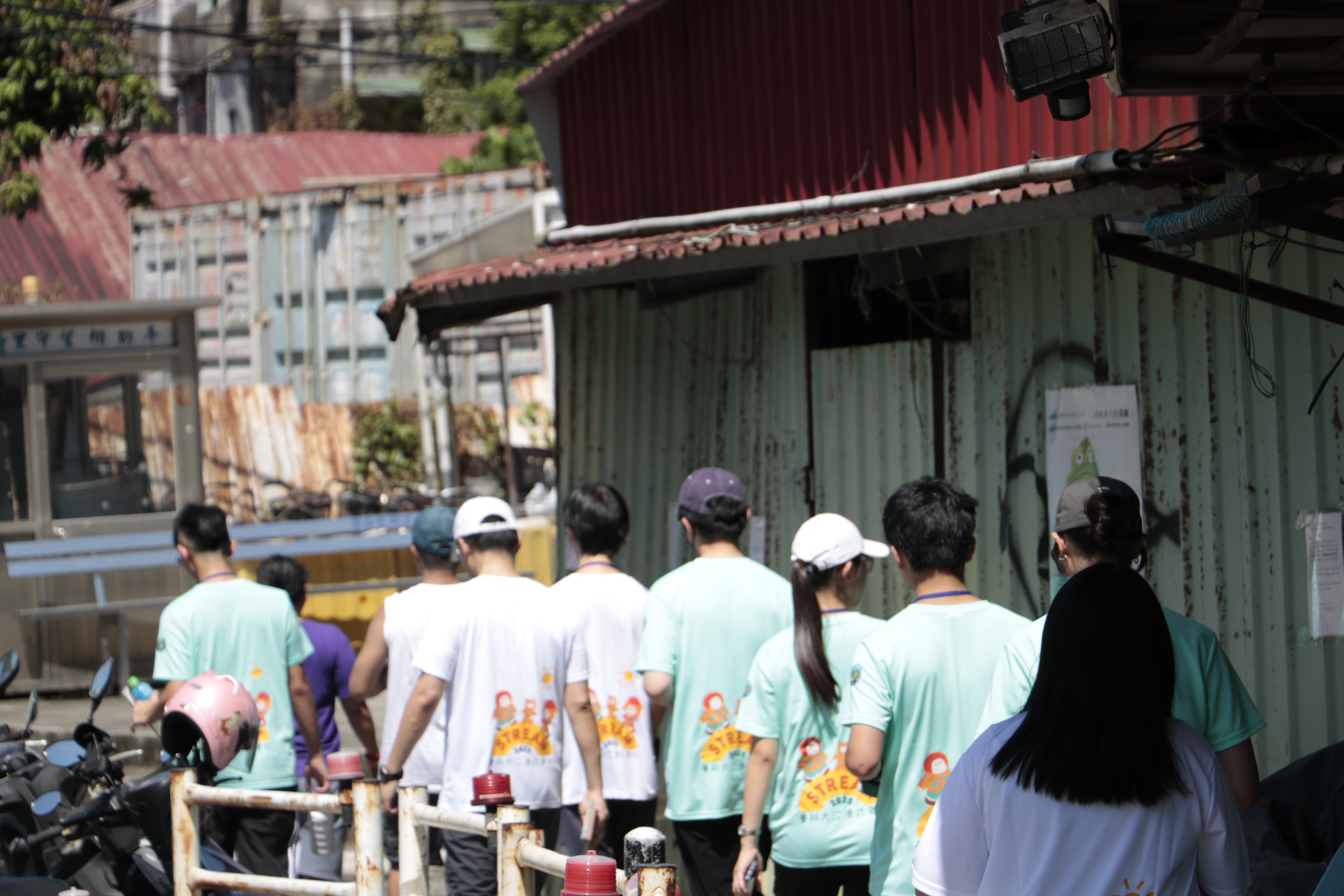
The camp’s learning sites spanned community settlements such as Treasure Hill Artist Village, Home Village, and Huan Min Village (Toad Mountain), where students worked in groups to conduct field observations.
Liang, a student from Taipei Municipal Da’an Vocational High School, shared that the camp’s positive atmosphere and frequent interaction encouraged him to express himself more proactively: “Normally, I’m hesitant to speak up, but here, both teachers and classmates encouraged and supported us to express our ideas and ask questions. It helped me break through my own barriers.” Liang’s parent added that before the camp, he was uncertain about his future academic path, but after participating, “He has started to list Taiwan Tech as his top choice for further studies.”
Chen, a student from Dongshan Senior High School, shared that the camp’s integration of technology and humanities - such as 3D printing technology and field investigations - allowed her to experience different facets of the learning process. Her parent further commented:
“Most camps focus on a single professional field, but the curriculum was diverse and even took students outside the classroom for on-site exploration. Through discussion and presentation, they experienced teamwork. I think the entire process was an excellent learning opportunity.”
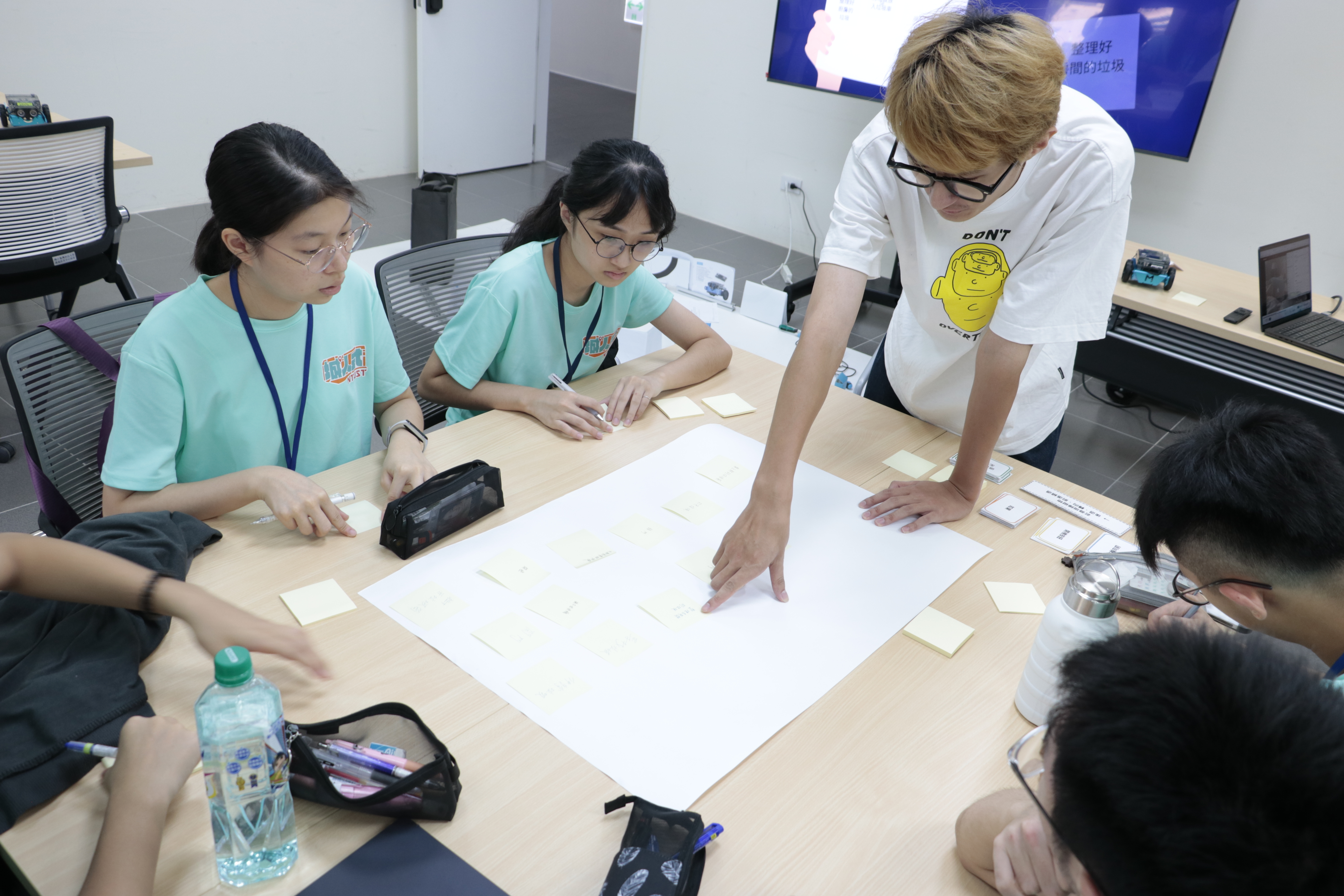
Teaching Assistant Yeh-Kuan Wang guided students in building the basic programming logic for mBots.
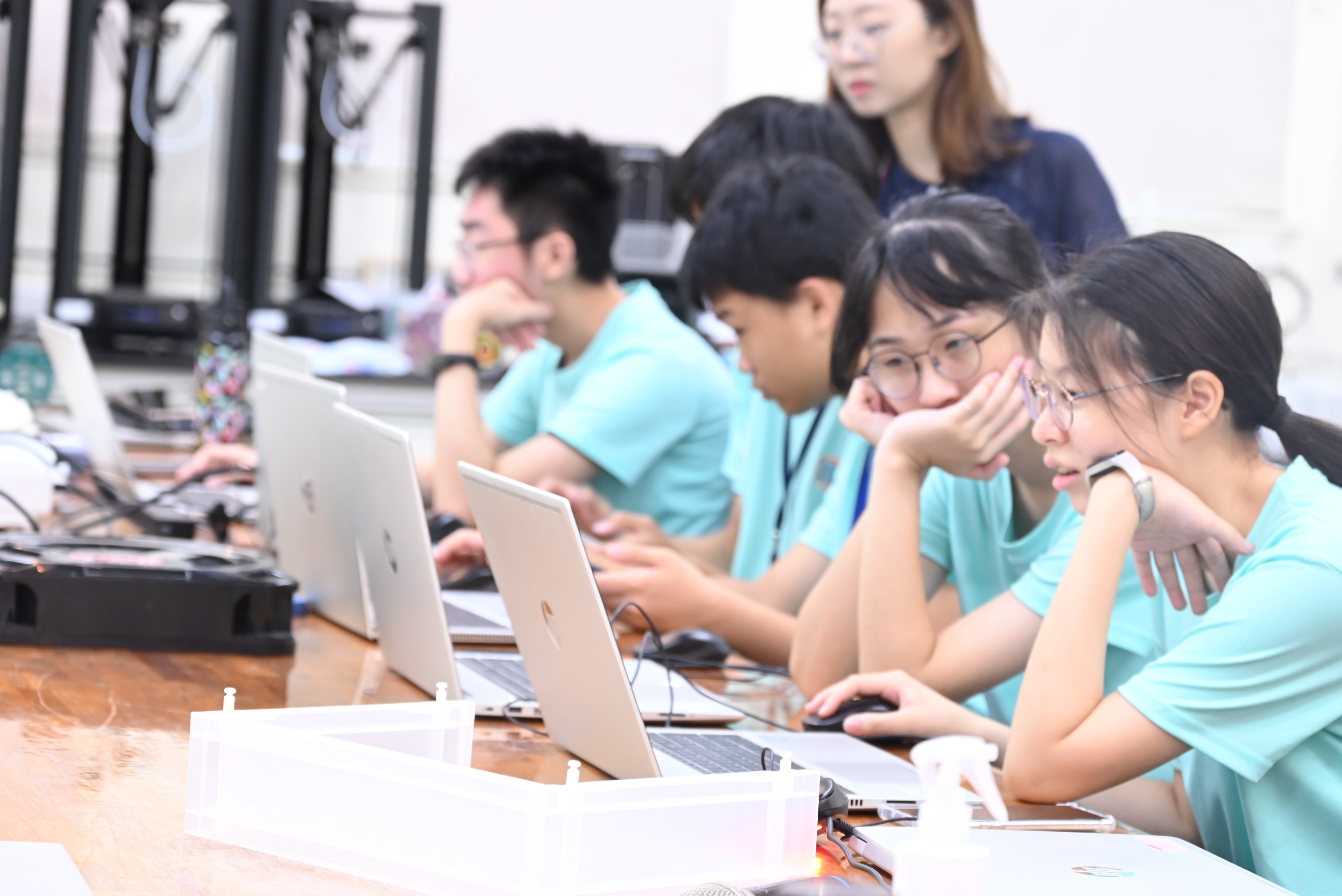
Students combined technological tools with on-site field studies to develop locally responsive “social prescriptions.”
The undergraduate students serving as co-learning partners also gained much from the experience. Through assisting in curriculum design, leading activities, and managing team conflicts, they came to appreciate the adaptability and collaboration skills required in real educational settings. Accompanying the group throughout the program, Professor Tai-Kuo Hsu observed: “Students showed confidence in the all-English curriculum, and their discussions on gender and social issues demonstrated an impressive depth of thought.”
Experts from various fields who served as judges for the final presentations also commended the students for extending their local observations into innovative ideas, showcasing a keen awareness of the intersections between technology and social issues. However, Kuo Chih-Chen, Chief Operating Officer of CraCrate Inc., offered a reminder: “Finding relevant solutions from online sources or through generative AI can produce polished results. But whether those solutions align with local contexts still requires human interpretation and implementation through cross-disciplinary thinking and real-world experience.”
The 2025 Urban STREAM Immersive Summer School showcased Taiwan Tech’s liberal arts education practice of integrating technology with the humanities and combining teaching with hands-on application. Looking ahead, the Center for General Education will continue to deepen collaboration among high schools, vocational schools, communities, and university students, creating a new generation of learning spaces that combine intellectual depth with public engagement.
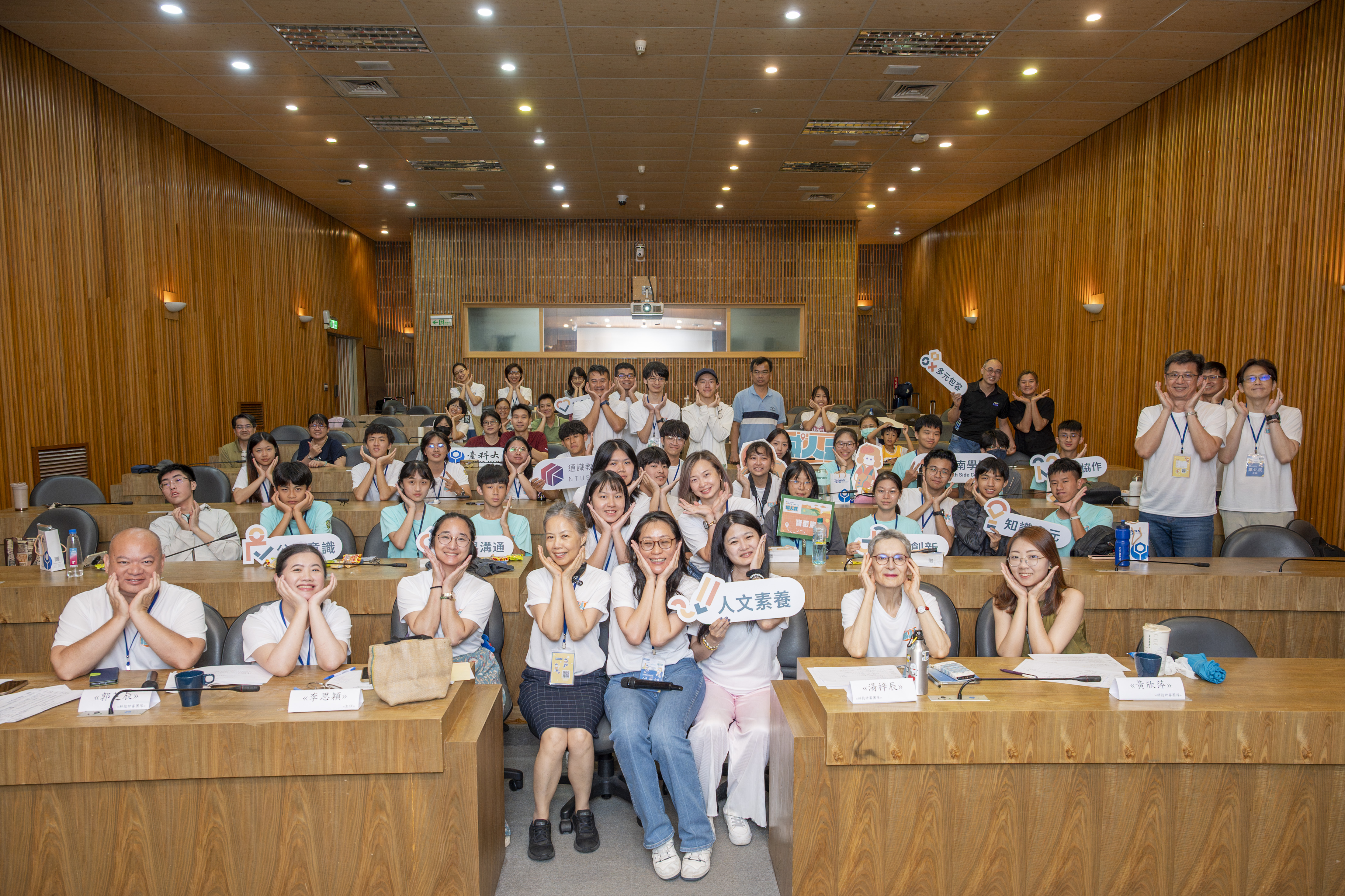
The camp integrated six core STREAM literacies - Science, Technology, Reading, Engineering, Arts, and Math - while incorporating humanistic dimensions such as cultural field studies, gender education, and psychology. Students were guided to engage with local issues, enhancing their social awareness and capacity for public participation.